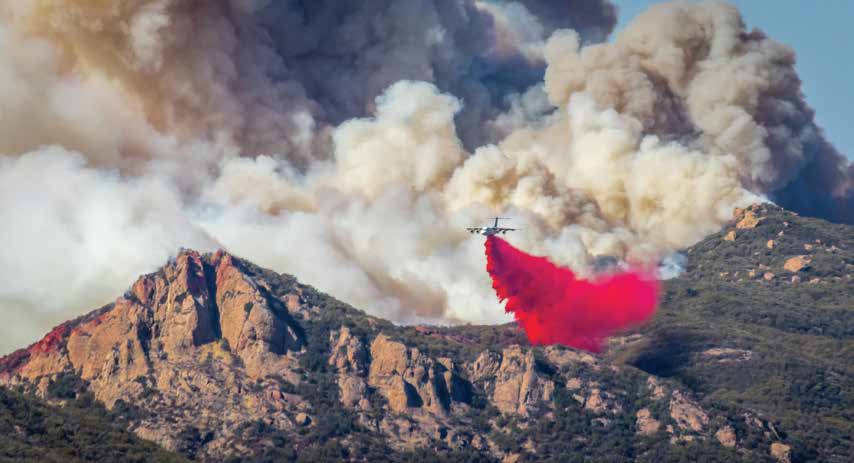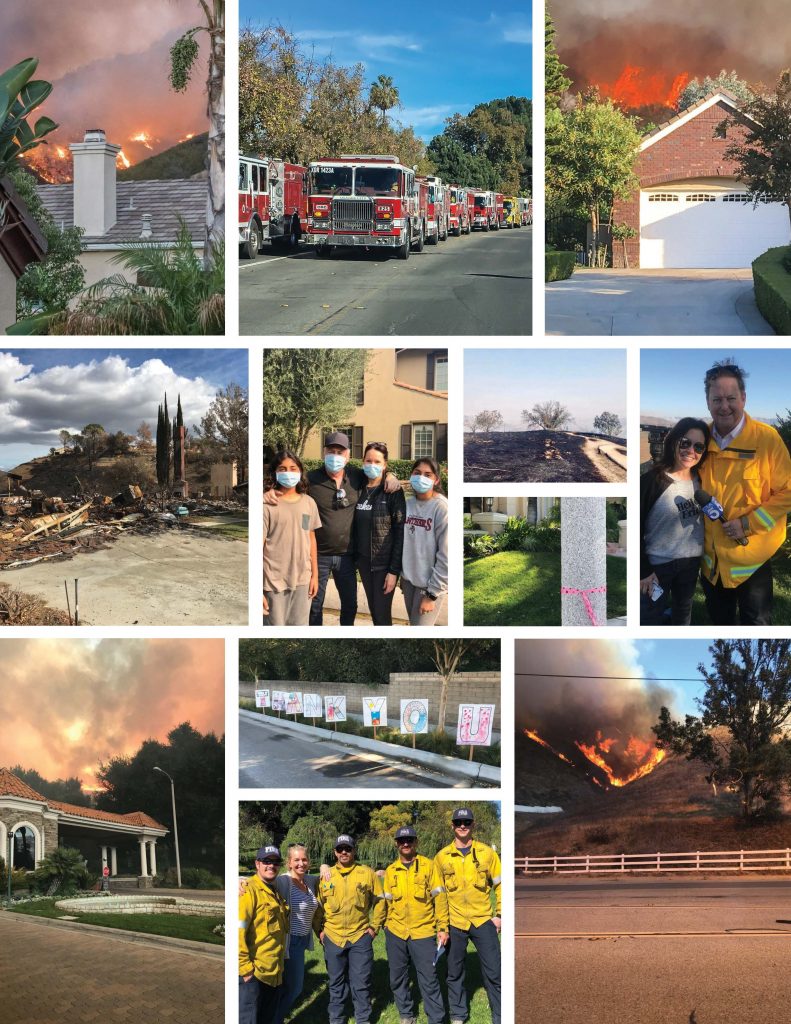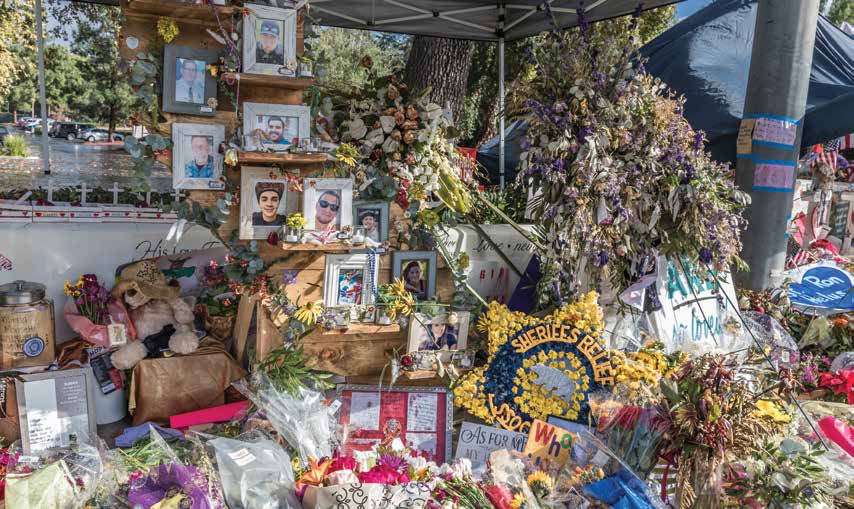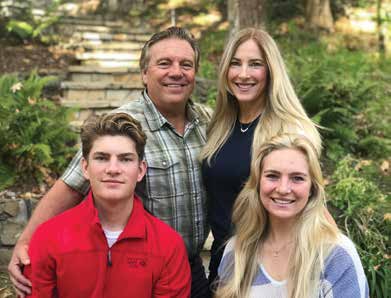
It is human nature to wonder in times of both joy and tragedy, Why them and not us? This is especially true when a firestorm rages throughout the town, destroying neighbors’ homes while sparing yours, or vice versa.
All told, the Woolsey Fire that ignited on November 8, 2018, burned 96,949 acres of land in communities such as Calabasas, Hidden Hills, Chatsworth, Bell Canyon, Malibu, Camarillo, Newbury Park, Thousand Oaks, Agoura, Oak Park, Malibou Lake, Westlake Village, and others. It killed three people, destroyed 1,643 structures, of the 75,000 that were at risk, and prompted the evacuation of more than 295,000 people. Captain Tony Imbrenda of the Los Angeles County Fire Department informed us that, “This fire affected hundreds of square miles and was 14 miles long when it crossed the 101 freeway with wind gusts in the excess of 75 mph.” The precise cause is still under investigation.
“The horrific spread of these megafires is, in part, due to ongoing drought conditions, extensive growth of flammable vegetation, and changing climate patterns,” explains Captain Imbrenda. According to the LACoFD, nothing is more critical than early compliance with evacuation orders and
creating 30- to 200-foot perimeters around structures that are fire of flammable vegetation to help continue saving lives and properties down the road.
Many of us were affected by the fire either personally or through friends and family who were displaced or lost their homes. What remains is the tenacity and generosity of the human spirit. People both within and beyond our communities continue to offer encouragement, a warm place to stay, and much-needed hugs, food, and clothing during these trying times. Many local businesses opened their doors to feed hungry firefighters and those in need. A myriad of residents dropped off food, clothing, and water; opened donation centers to assist fire victims; and continue to hold fundraisers. During the fires, most of us longed go back to our old, trivial day-to-day problems, like unwashed dishes in the sink or empty juice cartons in the refrigerator. We welcomed those familiar problems as we lived out of our cars, not knowing if our homes were still standing, or as we felt the overwhelming anxiety caused by the unknown becoming commonplace. It certainly puts things into perspective.
Fortunately, we also acted kinder to each other. People slowed down to talk to strangers rather than rushing on with their days. We hope some of that thoughtfulness remains as we return to a version of normalcy and as we start to heal together.

by Lori Berezin and Gayle Barnes
Photography by Steve Geldman, Dana Kasden Geldman, Val Punwar, Monica Parmar, Granger Korff, and Mark Ossola


